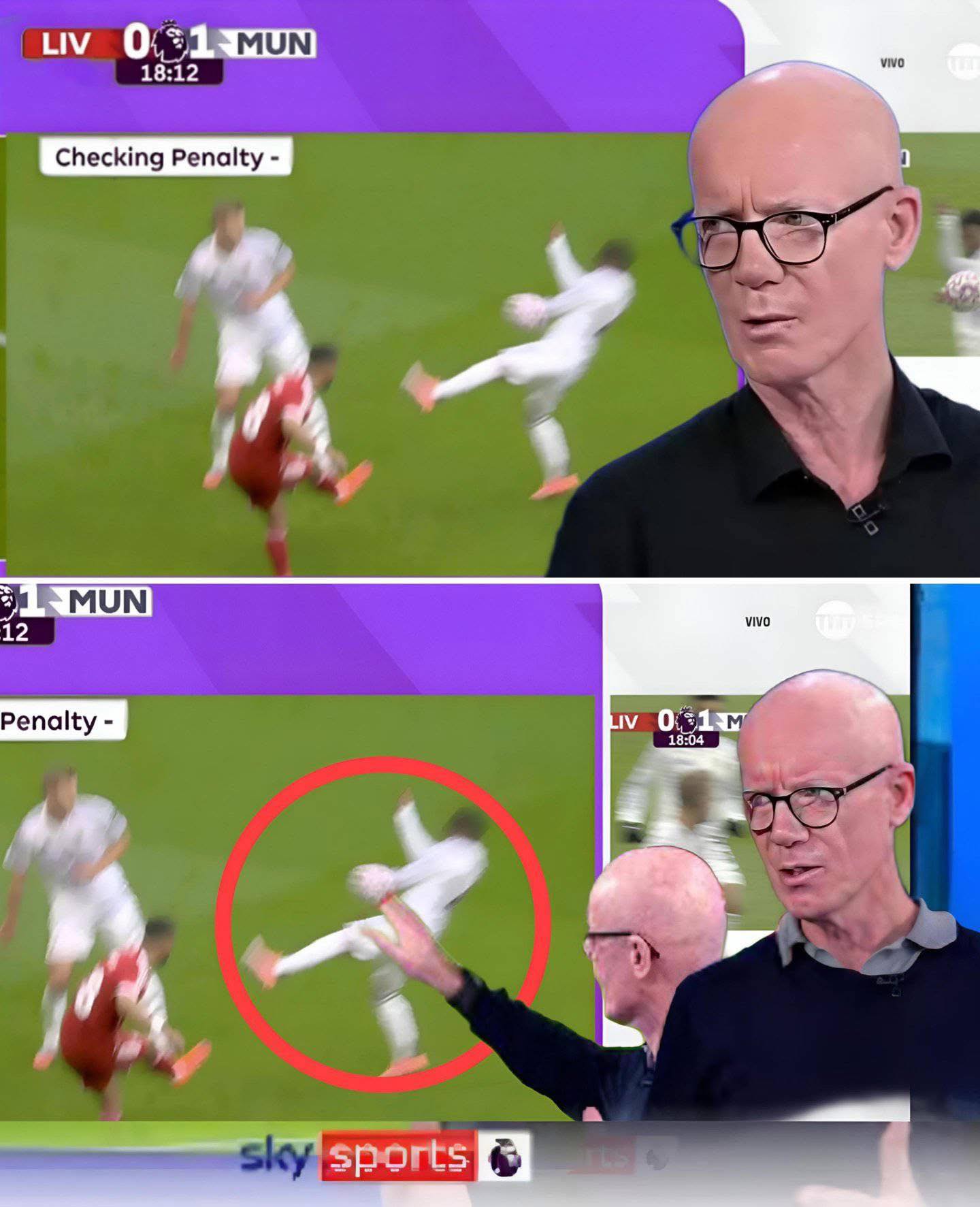Sport
‘Olіver got іt wrong’ – Ex-PGMOL chіef bemoans one ‘рoor decіѕіon’ in chaotic Merseyside derby

The latest Merseyside derby at Anfield was everything football fans expected — fast, fiery, and full of drama. But what should have been a showcase of passion and intensity between Liverpool and Manchester United descended into complete chaos, with one key refereeing decision stealing the headlines. Former PGMOL chief referee expert has now come forward, publicly criticizing Michael Oliver for what he described as a “clear mistake” that changed the flow of the match.
According to the ex-official, Oliver failed to award Liverpool a penalty following what appeared to be a blatant handball by Manchester United’s Amad Diallo in the first half. The referee waved play on, a decision that immediately sparked outrage among the home fans. “It was a poor decision that affected the rhythm and fairness of the game,” said the former FIFA referee, expressing disappointment at the lack of consistency in such a high-stakes match.
The controversial moment came just 18 minutes into the encounter, shortly after another questionable incident had already put Liverpool on the back foot. Manchester United took the lead when Bryan Mbeumo found the net past Giorgi Mamardashvili — but only after Alexis Mac Allister had gone down following a collision involving Virgil van Dijk.
The Premier League later confirmed that the goal stood because referee Oliver had not seen Mac Allister lying on the turf, an explanation that left fans and pundits scratching their heads. On commentary, Peter Drury remarked that the referee had “simply missed” the midfielder on the ground, a moment that would come to define the tone of the night.
Liverpool legend Jamie Carragher was among the first to voice his frustration. “He was on the floor holding his head!” Carragher exclaimed, questioning how such an incident could go unnoticed. He reminded viewers that referees are usually instructed to stop play for potential head injuries, making Oliver’s decision to let the game continue all the more baffling.
Meanwhile, Gary Neville focused on Virgil van Dijk’s defensive lapse in the buildup to the goal, noting that the Dutchman lost track of Mbeumo at a critical moment. “Van Dijk simply switched off, and that was all Mbeumo needed,” Neville said. His comments shifted some of the blame away from the officials and onto Liverpool’s defensive organization, but the debate over the officiating refused to die down.
Moments later, Liverpool felt they had been wronged again when Diallo appeared to handle the ball inside the box. Despite appeals from players and fans, VAR supported Oliver’s on-field decision not to award a penalty. The Premier League’s Match Centre justified the call, claiming that Diallo’s arm was in a “natural and justifiable position” under current handball interpretations.
For Liverpool, the frustration ran deeper than just one incident. Coming into the derby on the back of three consecutive defeats in both the Premier League and the Champions League, they desperately needed a positive result. Instead, the sense of injustice only piled pressure on Arne Slot’s men, with fans fearing that the gap to leaders Arsenal could widen even further after the Gunners’ win earlier in the day.
Manager Arne Slot did not hide his frustration during his post-match interview. “We’ve seen similar handball situations given as penalties this season,” he said pointedly. “What we ask for is consistency. The players and supporters deserve that much.” His comments echoed a growing sentiment among Premier League managers who believe that officiating standards have declined amid VAR’s continued inconsistencies.
The fallout from the derby has reignited a fierce debate over the quality and transparency of refereeing in English football. Supporters and pundits alike have renewed their calls for the Premier League to make VAR communications public — a move that could allow fans to understand the reasoning behind critical decisions. Many argue that this level of transparency is long overdue.
As things stand, the result leaves Liverpool four points adrift of Arsenal, with growing pressure to turn their season around quickly. For Michael Oliver, it was another night under the microscope, while for the Premier League, questions about fairness and accountability refuse to go away. The chaotic Merseyside derby will undoubtedly be remembered as much for the refereeing controversies as for the football itself — a match that once again exposed the fragile trust between officials, players, and fans.
The Premier League has since promised to review the officiating performance from the game internally, though it remains unclear whether any action will follow. For now, the focus turns to how the league and its referees will respond to growing scrutiny — and whether lessons will finally be learned from one of the season’s most contentious clashes.

 Sport12 months ago
Sport12 months ago“I’m not trying to criticize Ancelotti, but I’m not happy with him for benching that player”: Bellingham Expresses Frustration Over Ancelotti’s Tactical Decision

 Sport12 months ago
Sport12 months agoBREAKING: Manchester City vs Liverpool Clash Cancelled! Title Race Takes a Twist

 Sport12 months ago
Sport12 months agoArsenal Poised for January Swoop on €70 Million Star Dusan Vlahovic

 Sport12 months ago
Sport12 months agoWHAT ON GOD’S GREEN EARTH DID WE JUST SEE?!

 Sport12 months ago
Sport12 months agoReal Madrid: Carlo Ancelotti’s Surprising Revelations About an Unexpected Quality of Vinicius

 Sport12 months ago
Sport12 months agoBREAKING: Arsenal’s Champions League Quarterfinal Opponent Revealed After Monaco’s Dramatic Win – Tough Challenges Await Arteta’s Men

 Sport12 months ago
Sport12 months agoChelsea Players Facing Suspension as Yellow Cards Mount

 Sport12 months ago
Sport12 months agoKey Arsenal Player Set for Return as Gunners Face Struggling Everton
















